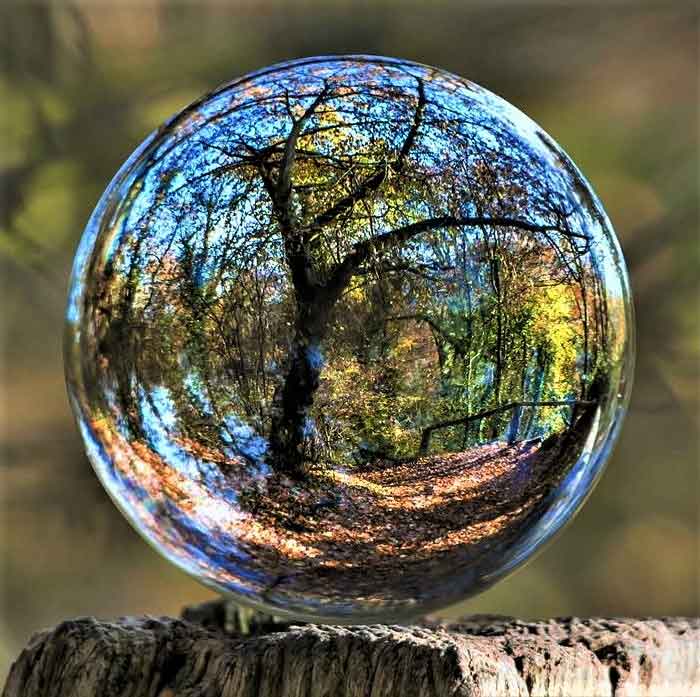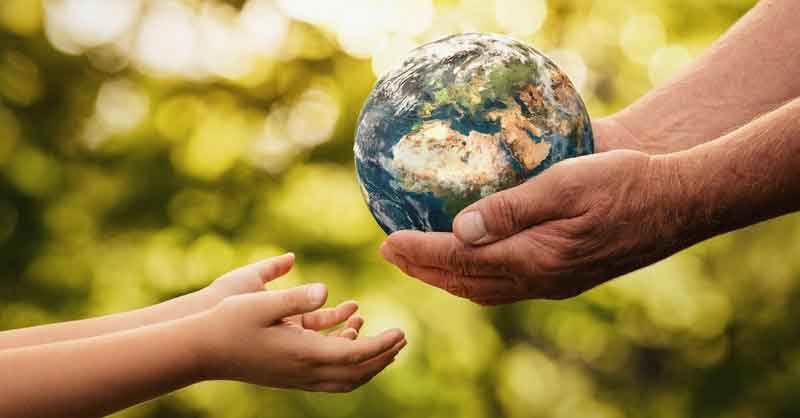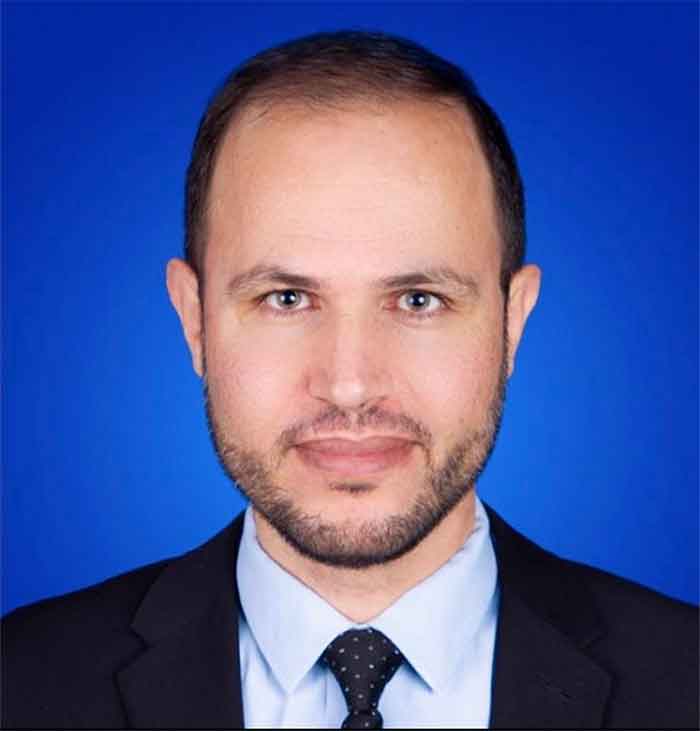
I wish to write a little on a couple of terms, one of which, Ground or Grounding Dimension, I learned from an essay by Larry Dossey, and the other, Floating World, came to me as a designation for America but which I now understand was formerly applied to the urban culture of Edo Japan. One of these terms implies connectedness, if not actually the condition of being embedded, the other implies detachment and endangering unreality.
For me, the Ground or Grounding Dimension has to do with the basic dynamic making possible and sustaining life; has to do with the quality of air we breathe, has to do with water and the quality of water for supporting life, has to do with land, soil, pollination, food, with diversity, has to do with the means of locomotion and has to do with relationships; the interconnections or broken connections between species and planetary systems. When the Grounding Dimension is absent from consciousness, appropriateness and value-priorities, human existence is rootless, biotically irresponsible, and maintained aggressively through artificial (contrary to natural) extension systems. This negative imposition of living against the natural processes of life I call the Floating World.
There is an awakening necessity and an urgency of our time in place, and foundational/confrontational choices between the Grounding Dimension and the Floating World; or whether the Floating World can be sufficiently rooted in instinct and soul, remembering and vision, without further traumatic, imperiling damage to the Ground Dimension—to the primary functioning of Earth’s realities and balancing forces.
The necessary of comprehensive changes runs through every aspect of modern society, from miniature to monumental, intimate to international, from what is immediate in the everyday, everywhere present, to what continues globally and constitutes the atmospheric wrap around that all living entities must, by Earth’s terms, reside within. The work required, the intergenerational work, is genuinely a Back to the Future Dialectic, where we must relearn vital skills and accommodations of pre-industrial living—even further back to ancestral instincts of reverence, respect, and interdependences—and forward to clean, non-invasive technologies (democratized technologies), and a culture deep rooted in appreciation, educational response-ability and an ethos of reciprocal relationships. In other words, the opposite of patriotic consumerism, addictive consumerism, escalating violence, trivialization, militant nationalism, malignant normalization, and environmental trashing.
Within this authenticating work, over time, there can emerge a new definition of being human within a Living Earth context and an ancient-new renaissance of the human role in Earth’s refining and sensitizing evolution. If, in sufficient numbers, we dedicate our lives to this directional change, we open the way to a new civilization, or at least to new (and spontaneous) forms of culture (which are more permanent and personalized). If we refuse or fail to engage this dialectic, the future may well be limited to a totalitarian elitism, or to chaos, or to oblivion.
These last words are not intended as a threat against anyone, but rather, a serious and immediate warning. The planetary condition is like that of a speeding car going the wrong way on a one-way street. Lives are at risk. As quickly and safely as possible, we need to slow down, turn around, and go the other way.
David Sparenberg is a world citizen, environmental & peace advocate & activist, actor, poet-playwright, storyteller, teacher and author.
GET COUNTERCURRENTS DAILY NEWSLETTER STRAIGHT TO YOUR INBOX
















































